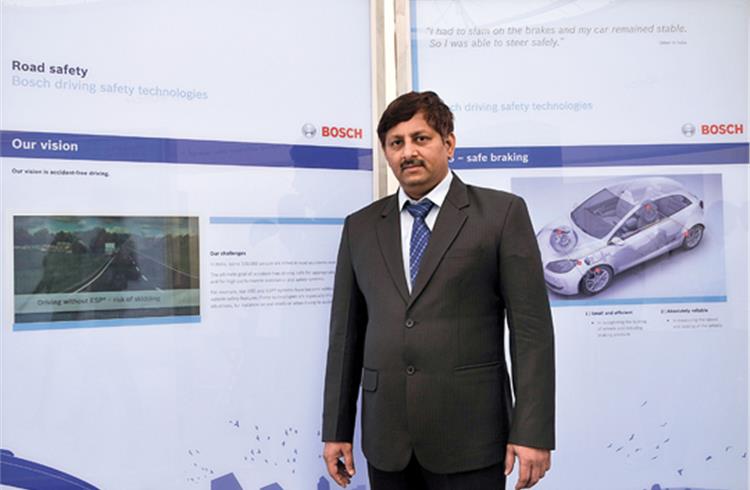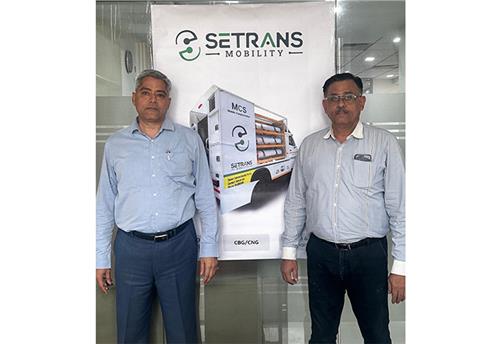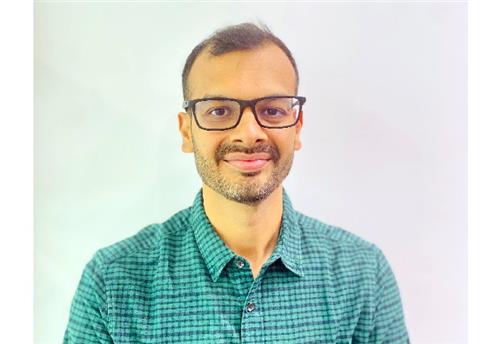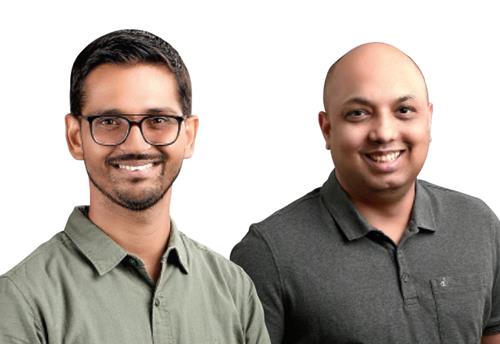May 1, 2012: V Balasubramanian, Deputy Managing Director (Chassis Systems Control), Bosch Ltd
India still lags far behind major car-producing countries in terms of safety features.
Other than ABS, what other safety tech are you considering for India?
There are many. Safety can be in many forms. What we call preventive safety like ABS and ESP are there to prevent an accident from happening. Then there are post-crash safety devices like airbags, to minimise the injury to the driver or minimise the effect of a crash. The third area that is gaining popularity in developed markets is driver assistance systems for safety.These systems use radar technology and video cameras and can sense obstacles that a driver cannot. For example, in foggy conditions, the radar can sense the obstacles in the way and inform the driver by using a buzzer so that the driver can take evasive action. There are other systems like lane departure warning and side impact warning. And sensors that give warnings to the driver can also take preventive measures on their own in emergency situations like applying the brakes automatically.
These systems exist in the majority of cars in developed countries. When will they come here?
See the evolution of these technologies. All these driver assistance systems come after the basic pre-crash and post-crash systems like ABS, ESP and airbags. These are the basic building block. We are still in that phase. Unless we have these basic systems that aid vehicle stability and braking stability, the rest of the features will not be possible. So everything is an evolution; we are a bit late in this evolution.
What is Bosch doing to educate Indian buyers about the importance of safety features in cars and bikes?
Indians look for value for money. We did a market survey last month with 2,500 people across India to find out what their top priorities are in a car. We were surprised to find out that safety products featured in the top five. They knew that safety systems like ABS are helpful but when we asked them what ABS does, not many were aware of that.
Does the cost put them off?
Not really. ABS is offered by OEMs on higher-end variants. The extra cost of the variant is not just due to ABS but because it also includes leather seats, alloy wheels, climate control and many other features that increase the cost.
What about entry-level cars like the Alto or Nano? Is it tough to package an ABS system that doesn’t drive the price up? Is Bosch working on a more cost-effective solution?
Yes, for such cars the cost should be less. It is possible. We are already offering customers a more light-weight and cost-effective system. I think in the coming years, prices should come down.
And for bikes, do you find it more difficult?
Bosch has developed a product for bikes which have at least one disc brake. The product is nearly ready now and will be in the market by next year. We require a hydraulic brake — all 125cc and above bikes have it for the front tyres, if not for the rear too. So for bikes with two disc brakes, we can have a two-channel ABS and for motorcycles with just one disc brake, we can have a one-channel ABS.
What is Bosch doing for pedestrian safety since it is of key importance in India?
Pedestrian safety is a premium car feature but that’s how evolution happens — from premium cars to mass market cars.
Since small cars form the bulk of car sales in India, what do you think is the best (and affordable) safety package for them?
The ideal solution is to have ESP and airbags. ESP always comes with ABS. In addition, you should have steering control and vehicle stability control.
How do other emerging markets compare with India as regards purchase of safety features in cars?
If you see the adoption of safety technologies, advanced countries like the USA and Europe, Japan, Korea and Australia have mandatory ESP and ABS. If you compare emerging markets like Brazil, there is a rule for all new cars produced and sold in Brazil from 2013 to have compulsory ABS, without which the car cannot be registered. In China, there is no legislation but the market has already accepted this product. Nearly 70-80 percent of the cars sold in China have ABS and ESP installed. So among the major car producing nations in the world, India is still far behind. Here the challenges are too many – you need good roads, good road discipline, good lane marking and good adherence to rules. By 2020, we should reduce fatalities due to automobiles from 1.9 million a year at present by half.
Has there been a shift of sourcing from Europe to Bosch India due to the ongoing economic crisis there?
I do not think it is related only to the current crisis. I think Bosch India has grown really big because of the domestic market. Our primary growth is mainly due to the domestic market. But there are exports to the Middle East and developed markets too but that is not just because of the pricing. Wherever we have the necessary technical competence, we are delivering to those markets. We have regularly been doing this from the 1990s. The standards are the same for Bosch, in Europe or India.
RELATED ARTICLES
Setrans Mobility Booster Charging top-up 25% EV range in 15 minutes
Two enterprising tech-savvy entrepreneurs Rana Roshan Singh and Vivek Ummat of Noida, Uttar Pradesh-based start-up Setra...
'Our products are proudly 100% designed and made in India'
Creatara Mobility, a New Delhi based electric two-wheeler startup, claims to have tackled various challenges in making i...
'EVs have been around for a much smaller time than ICE, so best practices are still evolving'
EV OEMs and start-ups are under pressure to reduce production costs and bring them close to ICE counterparts. Vaibhav Ku...





 By Autocar Pro News Desk
By Autocar Pro News Desk
 02 May 2012
02 May 2012
 2538 Views
2538 Views









